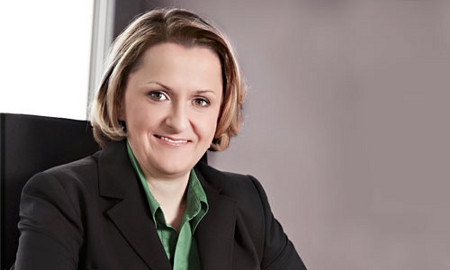To become a EU member state, a country has to meet the Copenhagen Criteria, readying itself for adoption of European standards in a number of fields. What aspects do you believe could make you the example to follow in the region?
Our regulatory framework is almost fully harmonized with EU legislation and the
Zagreb Stock Exchange runs one of the most modern trading platforms. In this respect, the Croatian capital market is completely ready to become a part of the EU. ZSE has always been a regional leader in the development of the capital market.
Economist Boris Vujčić has said that EU accession will increase the attractiveness of foreign investment. How do you expect this to affect the liquidity and future growth of the Zagreb Stock Exchange?
We are optimistic regarding EU accession. Some investors refrained from investing in markets such as ours because of – sometimes real but often perceived – political, liquidity and corporate governance risks. This will certainly change with EU accession but the question remains to what extent. The last countries to enter the EU were Bulgaria and Romania. Their capital markets have doubtlessly benefitted from EU accession but the economic environment was very different back in 2007. The potential exists and we are confident that we will maximize that potential.
The Croatian capital market has seen growing openness and flexibility, and this is a realistic sign that the Croatian economy is open to foreign investors. How can they contribute to the growth of Croatia’s capital markets?
Like many relatively young capital markets, the ZSE faces liquidity issues. This became especially emphasized during the recent crisis when some of the foreign investors that were also important liquidity providers withdrew. We hope to see their renewed interest. Full EU membership is expected to accelerate fiscal and structural reforms and should make Croatia more attractive for foreign investors.
In Croatia, the government has plans to privatize a series of state owned assets and the ZSE is the perfect venue for successful auctioning of shares to the public. Could you share your views on the opportunities that Croatia’s privatization process will open for investors and I-banks?
If the government carries on with its intention to privatize some companies where the state has a stake on the stock exchange, it will certainly bring some optimism and overall capital market. We hope to see some interesting investment stories that could create great opportunities for foreign investors as well.
Could you give an overview of the IPO and M&A activity of Croatia, and Zagreb’s potential to be the financial hub of the region?
Back in 2007, retail investors became significant liquidity providers on the ZSE and it was a highly successful year marked by a series of public offerings and new listings. The IPO success has done more to attract and educate retail investors than any other move in our market history and represents a major leap in the quality of shareholder structure.
The founder of the ZSE, Samuel Alexander, was known as “the organizational genius” and a great philanthropist. How does it feel to fill the shoes of such a Croatian icon and would you also like to ensure that your contribution to Croatia is a lasting one?
At the beginning of 20th century, Croatian businessmen founded the Association of Industrialists and Merchants of Croatia and Slavonia. The association spurred the establishment of the Commodities and Valuables Division in 1907. Samuel Alexander headed this division, which effectively launched the market in the stocks of local factories and financial institutions that major exchanges in Vienna and Budapest would not admit to trading.
This exchange was active until 1911, when its operations were closed down. It was reopened in 1918, closed again in 1945 and finally revived in 1991. Many significant Croatian businessmen and stakeholders participated in its establishment, re-establishment and activities, and they were all aware of the great importance and crucial role of the exchange in the economy in general. Samuel Alexander was one of them and ZSE certainly wants to continue to follow in the footsteps of those visionaries.

0 COMMENTS